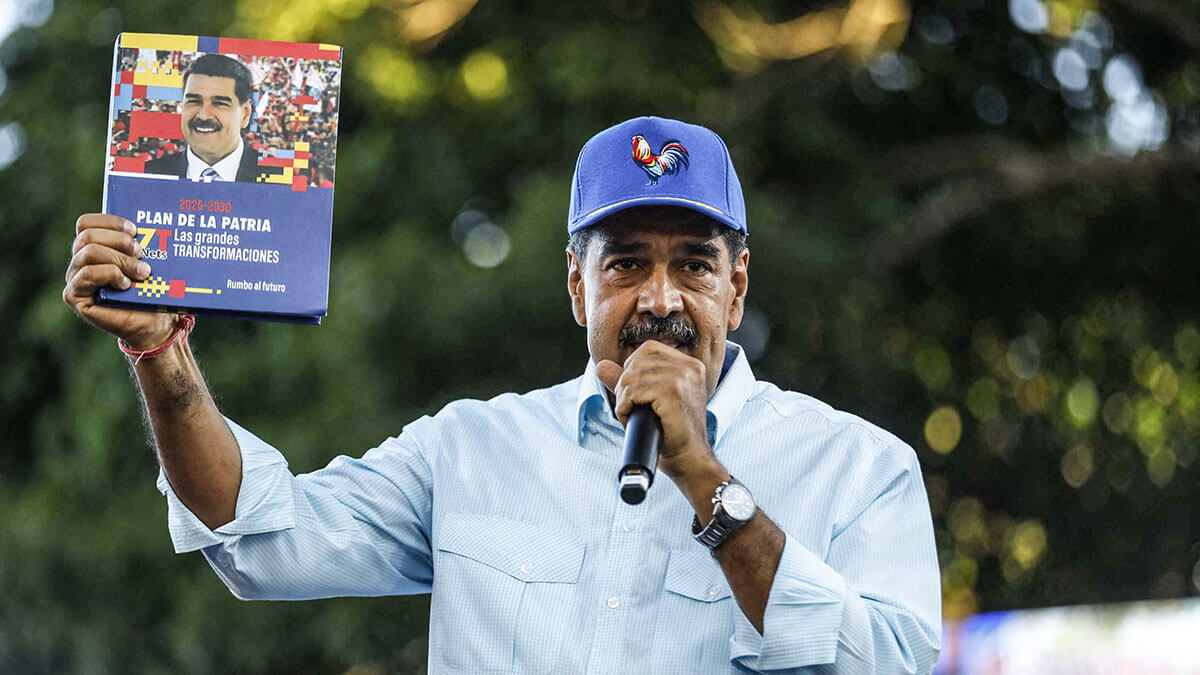Caudillismo and authoritarian regimes are not a new phenomenon in Venezuela. They are part of the development of the political power structure of the local elites and emerged after the end of Spanish colonial rule with the dictatorship of the liberator Simón Bolívar from 1813-1814 and 1828-1830. After the dissolution of Gran Colombia in 1830 and the founding of Venezuela as an independent state, the political tradition of caudillos and dictators began to consolidate in Venezuela.
General José Antonio Páez established himself as a great military caudillo and ruled with an iron fist for three terms: 1831-1835, 1839-1843 and 1861-1863.From 1847 to 1858, the dictatorships of the brothers José Tadeo and José Gregorio Monagas Burgos were consolidated. From 1870 to 1887, the dictatorship of Antonio Guzmán Blanco reigned, who remained in power for 17 years. The 19th century ended and the 20th century began with the dictatorship of Cipriano Castro Ruíz from 1899 to 1908. Then came the 27-year dictatorship of Juan Vicente Gómez from 1908 to 1935, and the cycle of right-wing dictatorships ended with Marcos Pérez Jiménez from 1952 to 1958. From then on, democracy returned, and in 1992, Colonel Hugo Chávez attempted a coup against President Carlos Andrés Pérez, but it failed.
In 1998, Chávez was elected president and a new political cycle began in Venezuela with the coming to power of a “left” government with the famous 21st century socialism and the historic cycle of left-wing caudillismo in Venezuela that began in Miraflores.Chávez ruled until 2013. After his death, Nicolás Maduro, a Cuban-educated politician, seized power and, by winning rigged elections, established an autocratic regime disguised as a democracy.
The survival of his regime depends on the mediation efforts of the governments of Brazil, Mexico and Colombia. Brazil’s economic and geopolitical weight as an emerging power and as a member of the five leading BRICS countries gives the country even greater importance.
Brazilian President Luiz Inácio Lula da Silva has the leadership to bring the United States, China and Russia to the negotiating table. Three powers with economic and strategic interests in Venezuela’s oil wealth and a seat on the UN Security Council. Of course, the presidents of Colombia, Gustavo Petro, and Mexico, Andrés Manuel López Obrador, have the political will and a certain political weight on the continent to help resolve the crisis. However, they do not have the global geopolitical role to bring the three largest powers in the world to the negotiating table and find a way out of the Venezuelan crisis.
President Lula da Silva has the global leadership to speak directly with the presidents of the United States, Russia and China in pursuit of a solution to the crisis in Venezuela. Due to its close relations with the Russian regime and its peculiarities in terms of its calm and prudent diplomacy, the Chinese government can play a mediating role and bring Russia and the United States to the negotiating table on the situation in Venezuela.
Although the Cuban regime has influence over the Maduro government and the Venezuelan armed forces are trained in Cuban military doctrine, the political crisis cannot be resolved without the intervention of the world’s three largest powers, since Venezuela’s energy reserves have economic, geopolitical and geostrategic importance for them. In short, the crisis will be resolved if the three powers reach certain agreements on Venezuela’s energy resources.
@j15mosquera

